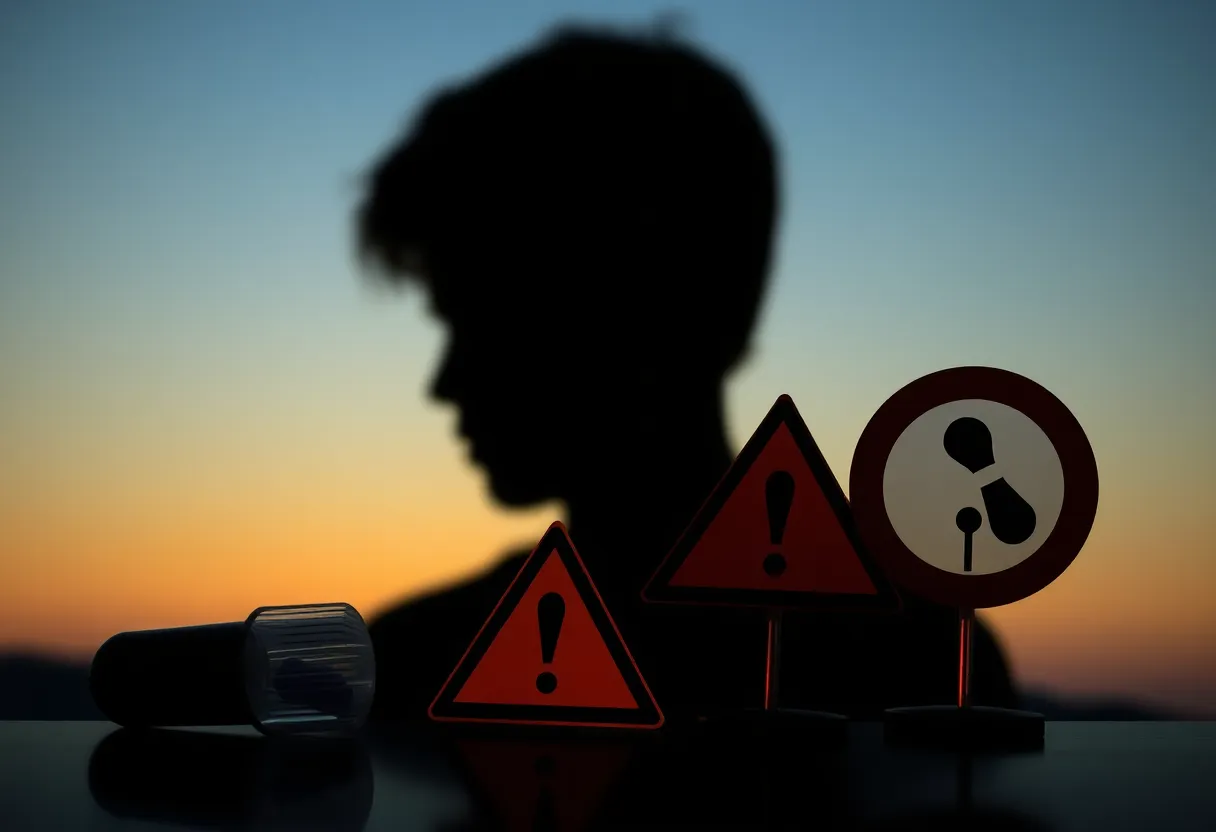News Summary
In a decisive move, Florida Attorney General James Uthmeier has classified 7-hydroxymitragynine (7-OH) as a Schedule I controlled substance, rendering its sale, possession, and distribution illegal within the state. This ruling follows growing health concerns due to the substance’s opioid-like effects and high potential for addiction, particularly among young people. The emergency regulation aims to combat rising public health risks linked to 7-OH use, effectively restricting its widespread availability in retail locations, and comes amid increasing reports of overdose cases and emergency room visits related to the substance.
Florida Declares 7-Hydroxymitragynine as Schedule I Substance
Florida Attorney General James Uthmeier declared an emergency rule on August 13, classifying 7-hydroxymitragynine (7-OH) as a Schedule I controlled substance. This immediate action makes it illegal to sell, possess, or distribute 7-OH within the state, marking it alongside other substances such as meth, fentanyl, and bath salts, which are recognized for having a high potential for abuse and no accepted medical use.
The enforcement of this new regulation could begin as soon as the morning of August 14.
Health Concerns Drive Regulation
7-OH is a concentrated byproduct derived from the kratom plant, which originates from Southeast Asia and is often marketed as a natural remedy for pain and anxiety relief. Medical experts have raised alarms about the substance due to its potential to produce effects similar to those of opioids and opiates, increasing the risk of addiction. Due to its potency—believed to be up to 13 times stronger than morphine—7-OH poses a substantial risk to public health, particularly among young people.
Uthmeier emphasized the urgency of the situation during a press conference at Tampa General Hospital, citing escalating public health threats associated with 7-OH use. Reports show that emergency room visits linked to kratom and its concentrated forms have surged, especially among individuals under the age of 25. Moreover, Florida Poison Control Centers have recorded a 14% increase in calls regarding 7-OH exposure over the last three months, with a total of 191 calls in the past year.
The Florida Department of Health, along with local agencies, has been monitoring these alarming trends closely. Uthmeier’s emergency order aims to curtail access to 7-OH, especially given its widespread availability at gas stations and vape shops, often marketed in appealing packages targeted at teenagers.
Expert Opinions and Background Context
Dr. Marty Makary, FDA Commissioner, described 7-OH as potentially representing “the fourth wave of the opioid epidemic.” Concerns about its regulation have escalated, leading Uthmeier to affirm the need for protective measures following personal tragedies linked to 7-OH overdoses. The emergency ruling follows recent FDA actions against companies illegally marketing products that contain 7-OH, marking a significant pivot in regulatory efforts at the state level.
Additionally, Florida Surgeon General Dr. Joseph Ladapo made a distinction between the kratom leaf itself—which may exhibit some health benefits—and the concentrated form of 7-OH, which he deemed dangerous.
While the emergency rule has received support from many health officials, there are critics of the ban. Some, like attorney Paula Chavenko from the Holistic Alternative Recovery Trust (HART), advocate for regulated access to 7-OH, arguing it may help individuals recover from opioid addiction when used responsibly. This perspective highlights a contentious debate over the balance between safety and access to potential therapeutic benefits.
Further Implications
The regulatory change signifies a proactive move by Florida authorities in addressing health dangers associated with new synthetic substances. Uthmeier and his team are focused on keeping communities safe and minimizing further tragedies linked to substance abuse. As the state moves forward with implementing this emergency rule, public health officials will continue to assess the situation, aiming to strike a critical balance between regulation and health education concerning substances like 7-OH.
Deeper Dive: News & Info About This Topic
- Tallahassee.com: Florida Bans 7-OH Kratom
- Florida Phoenix: Florida AG Issues Emergency Rule Banning Kratom Compound
- Fox 13 News: Florida AG Uthmeier Taking Emergency Action Against 7-OH
- Wikipedia: Kratom
- NBC Miami: Highly Addictive Synthetic Drug 7-OH is Now Banned in Florida
- Google Search: 7-Hydroxymitragynine Ban Florida

Author: STAFF HERE PETERSBURG WRITER
The ST PETERSBURG STAFF WRITER represents the experienced team at HEREStPetersburg.com, your go-to source for actionable local news and information in St Petersburg, Pinellas County, and beyond. Specializing in "news you can use," we cover essential topics like product reviews for personal and business needs, local business directories, politics, real estate trends, neighborhood insights, and state news affecting the area—with deep expertise drawn from years of dedicated reporting and strong community input, including local press releases and business updates. We deliver top reporting on high-value events such as Grand Prix of St. Petersburg, Localtopia, and SHINE Mural Festival. Our coverage extends to key organizations like the St. Petersburg Area Chamber of Commerce and St. Pete Downtown Partnership, plus leading businesses in finance, manufacturing, and healthcare that power the local economy such as Raymond James Financial, Jabil, and Bayfront Health St. Petersburg. As part of the broader HERE network, including HEREJacksonville.com, HEREOrlando.com, HERETallahassee.com, and HERETampa.com, we provide comprehensive, credible insights into Florida's dynamic landscape.



